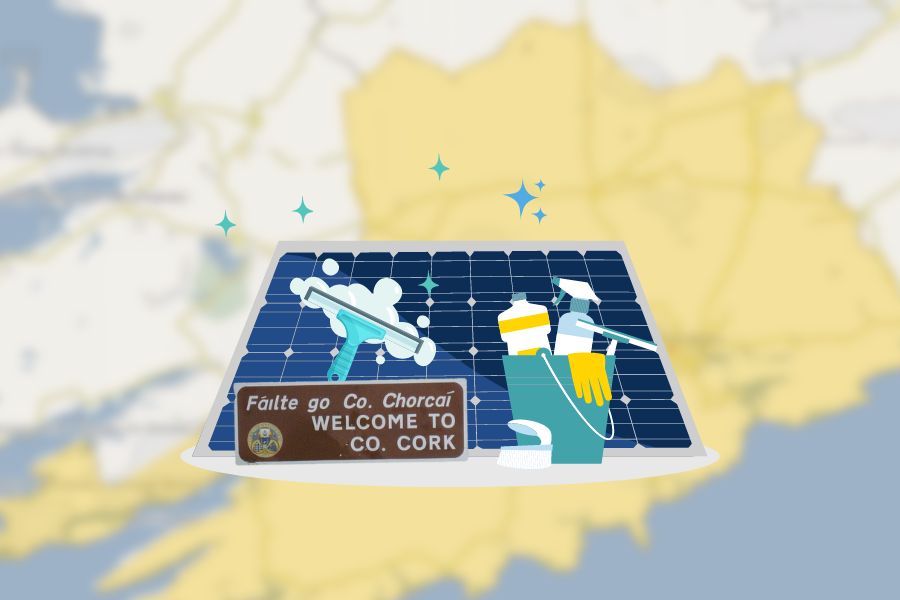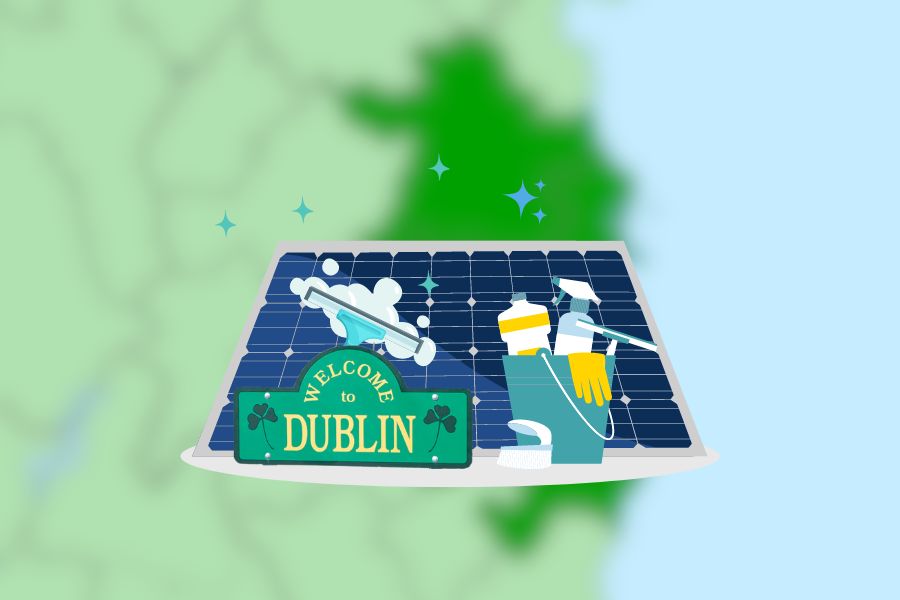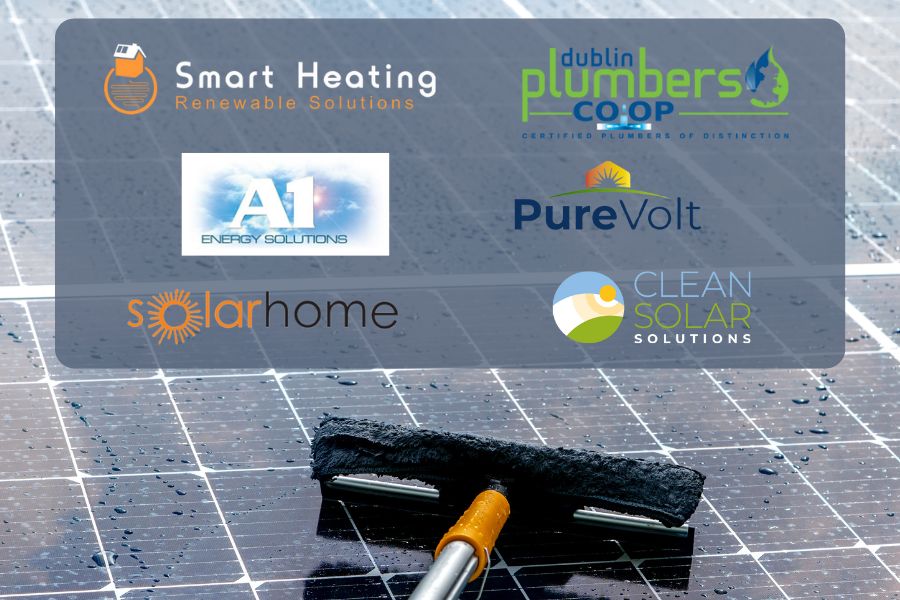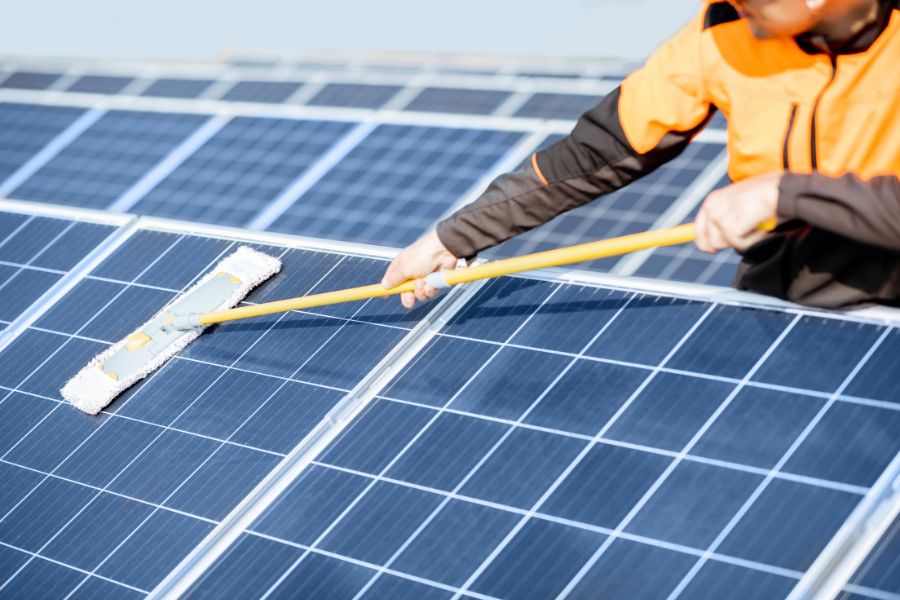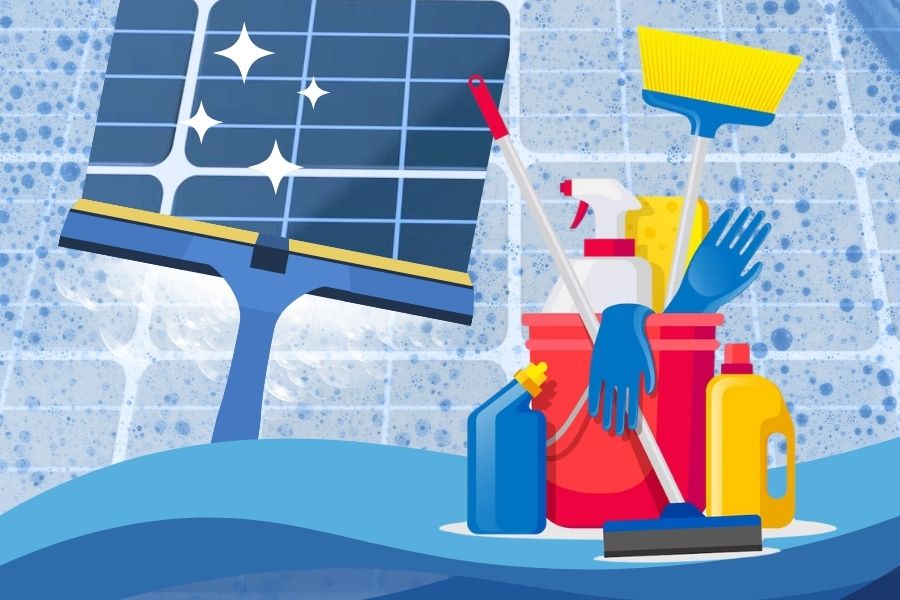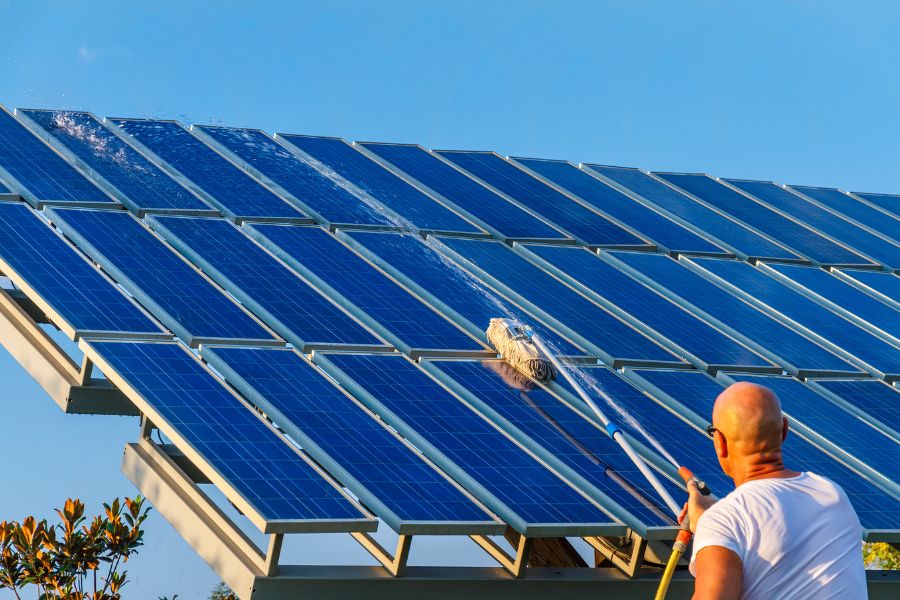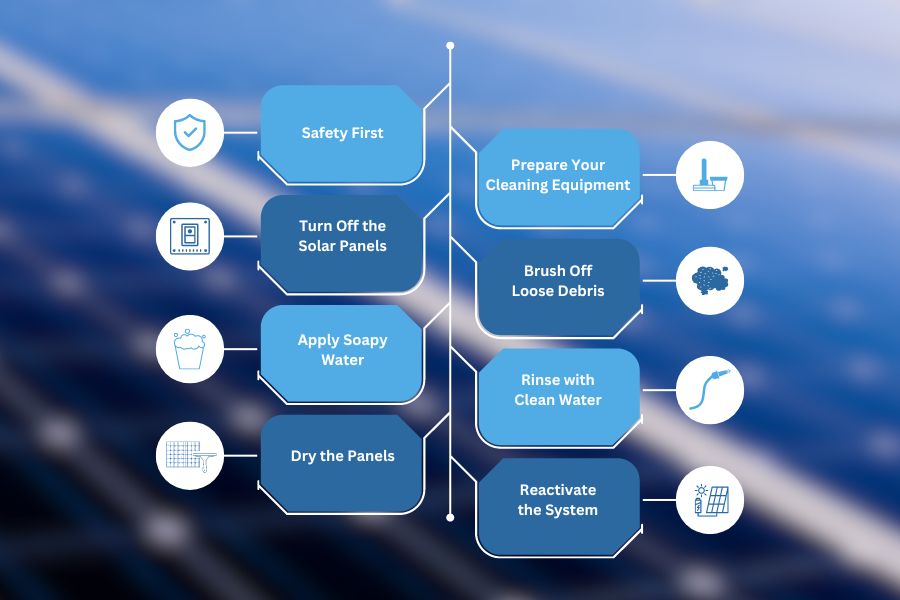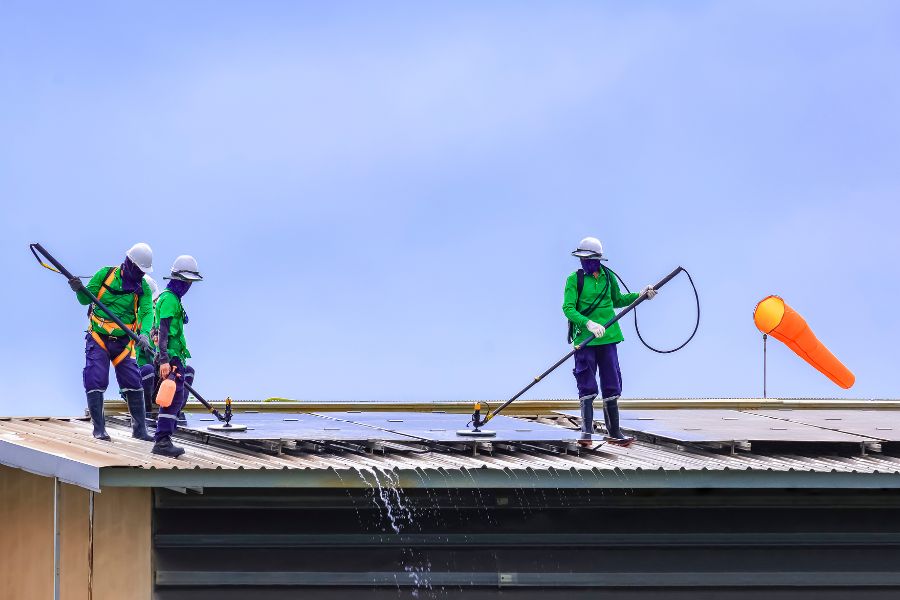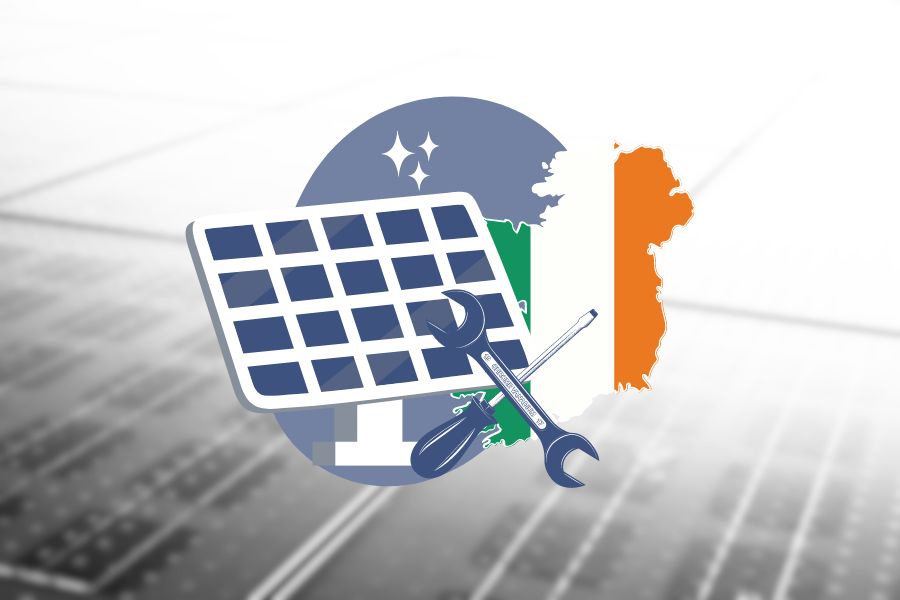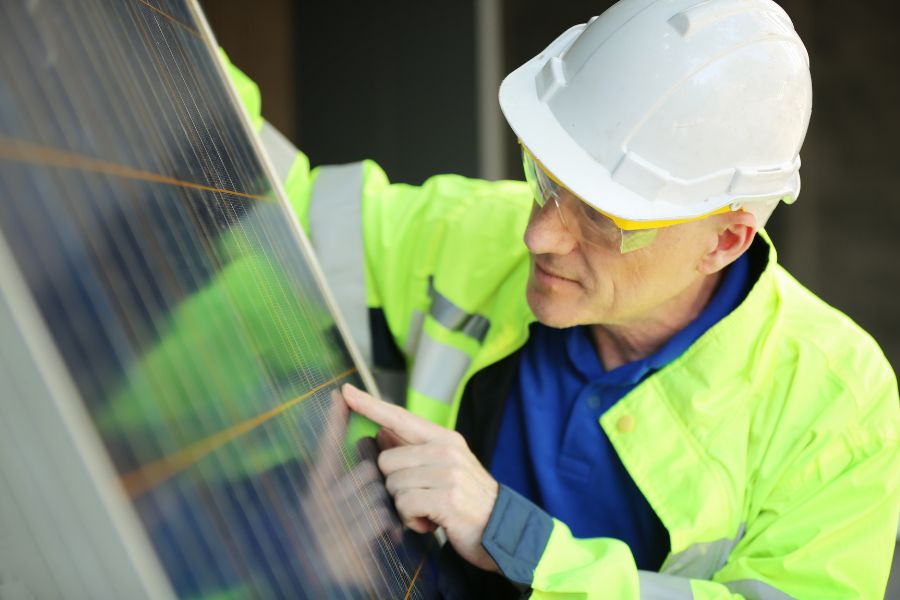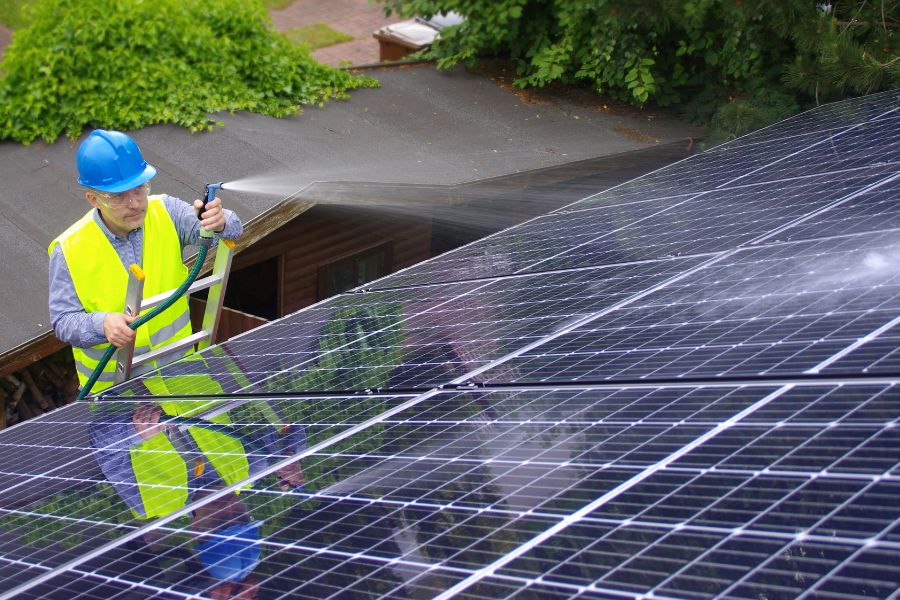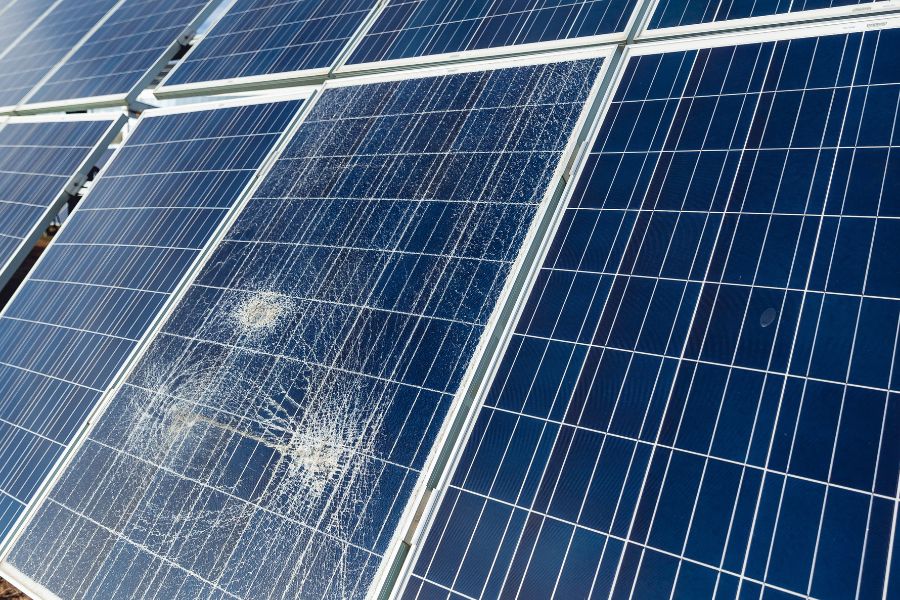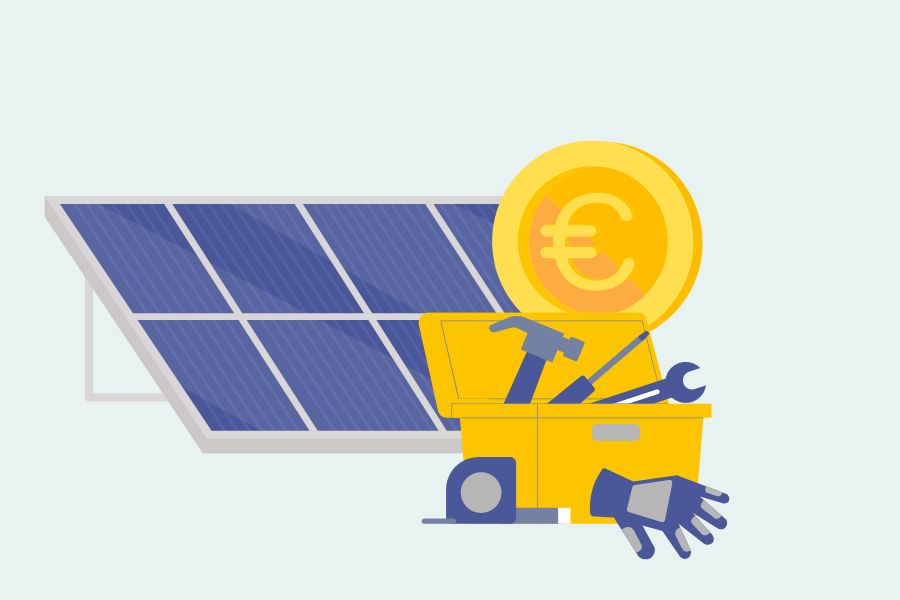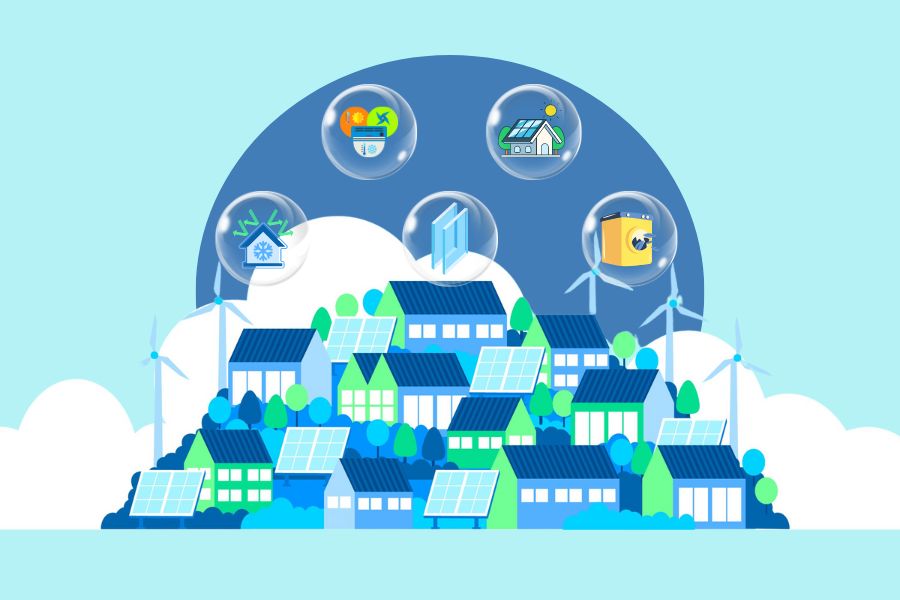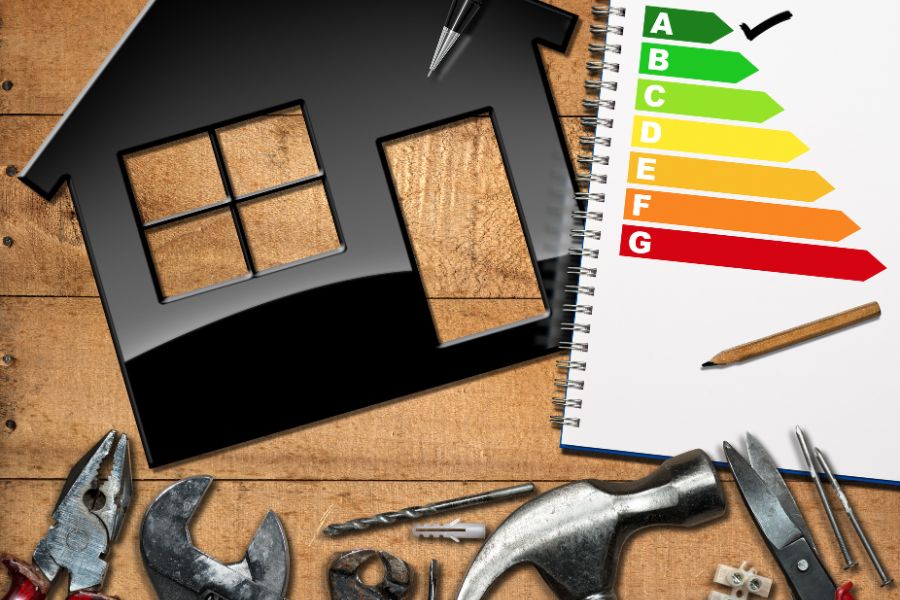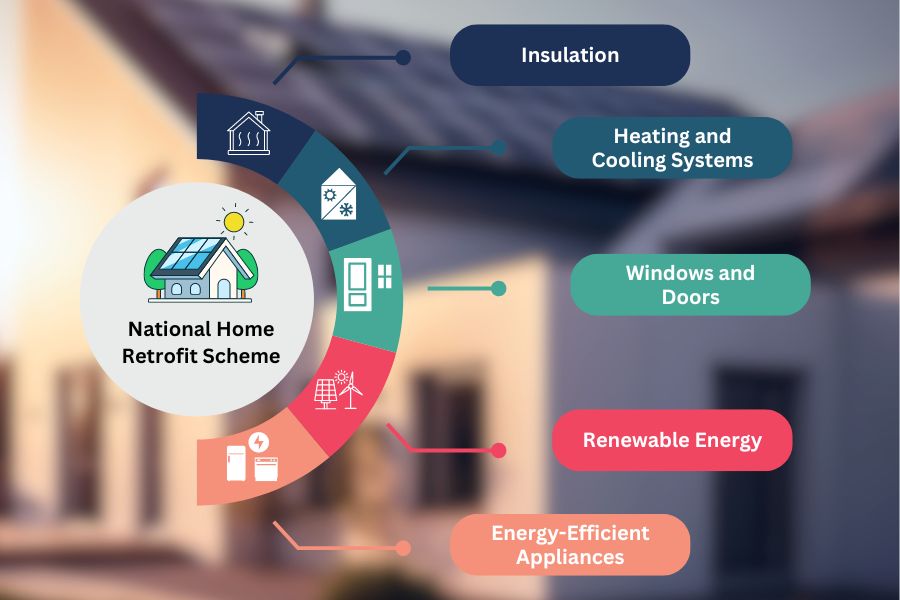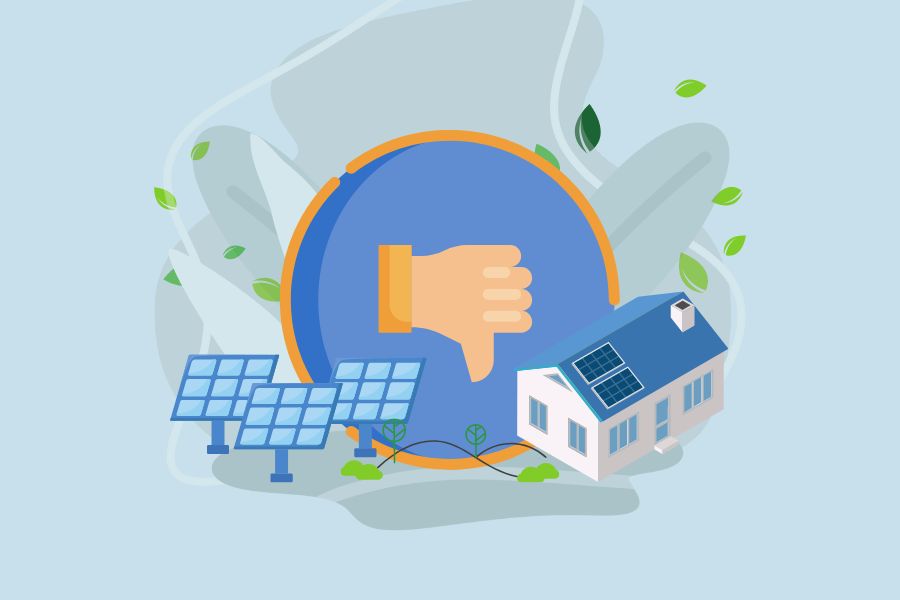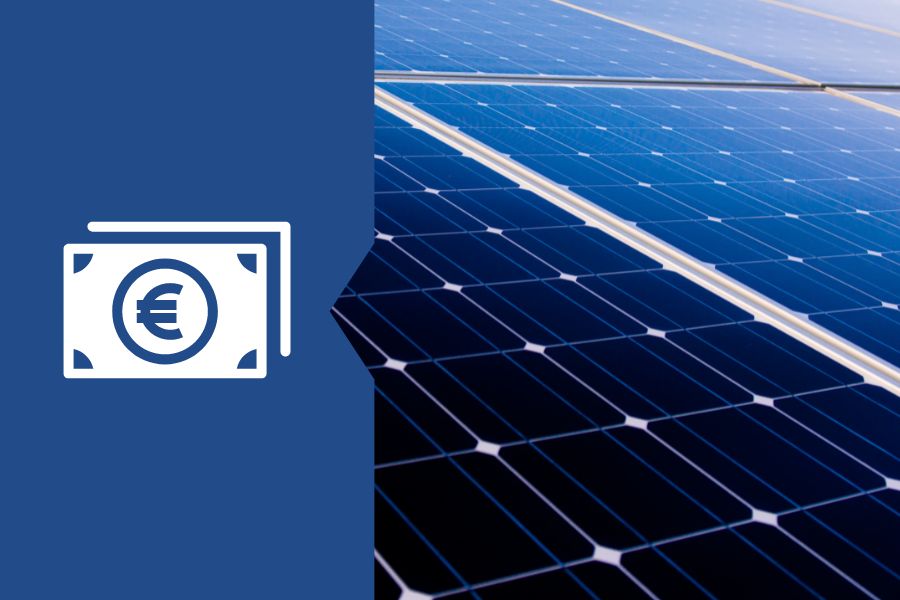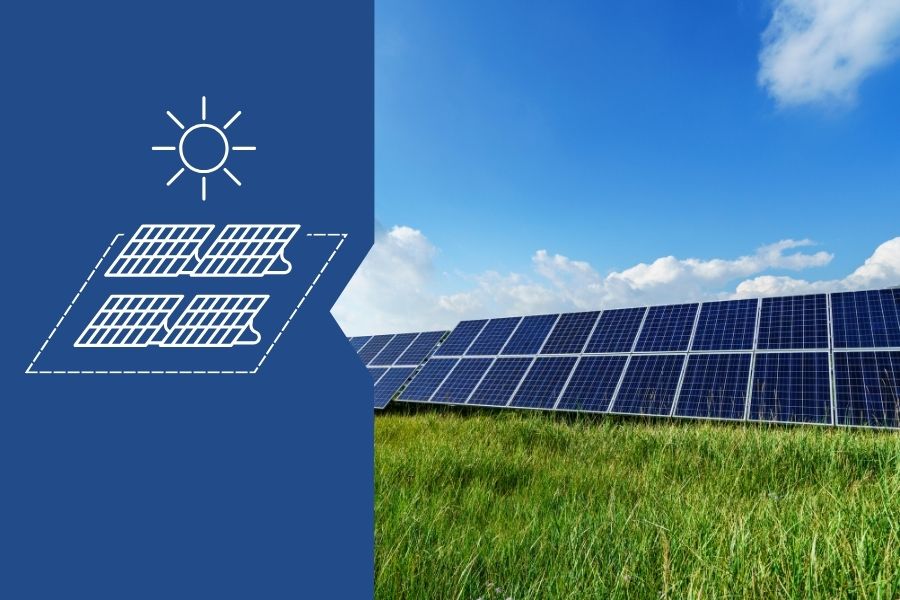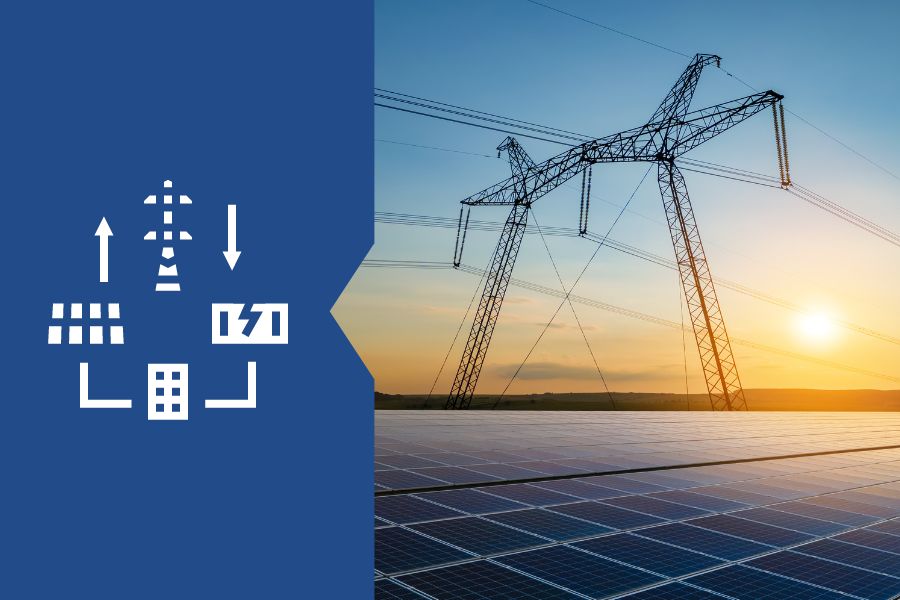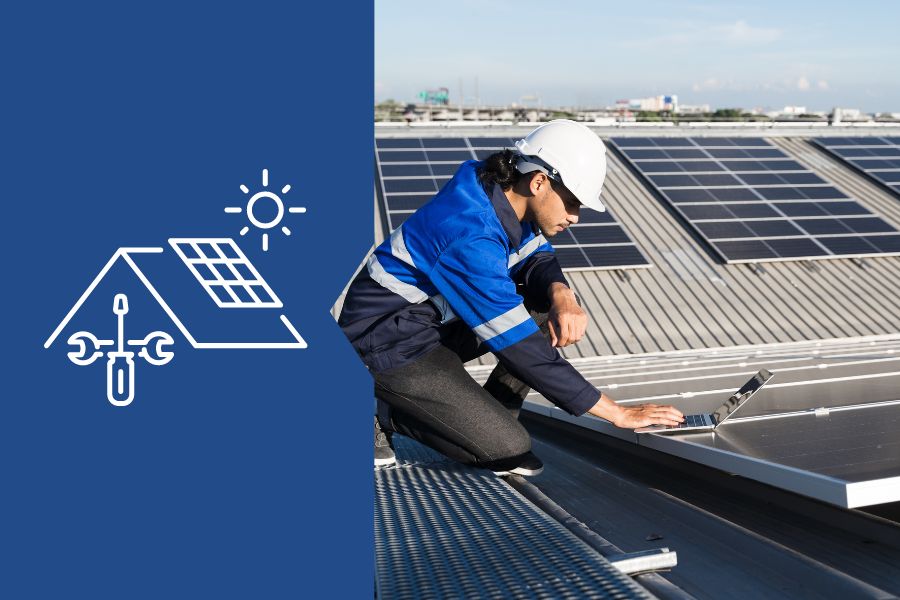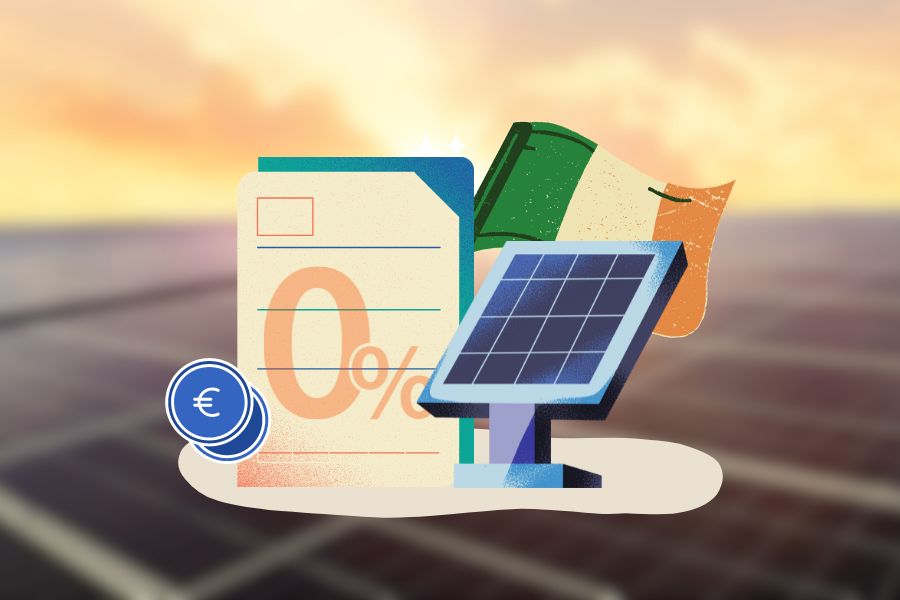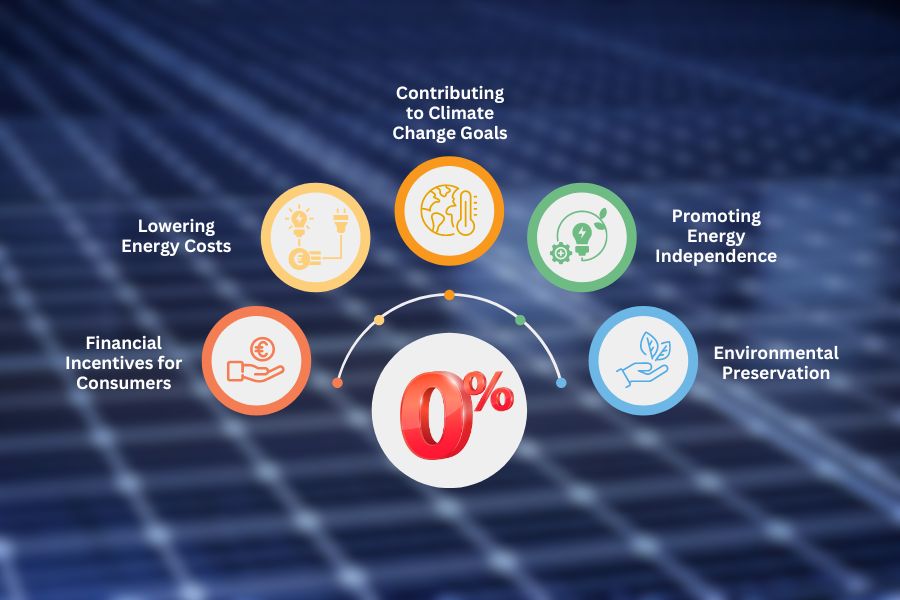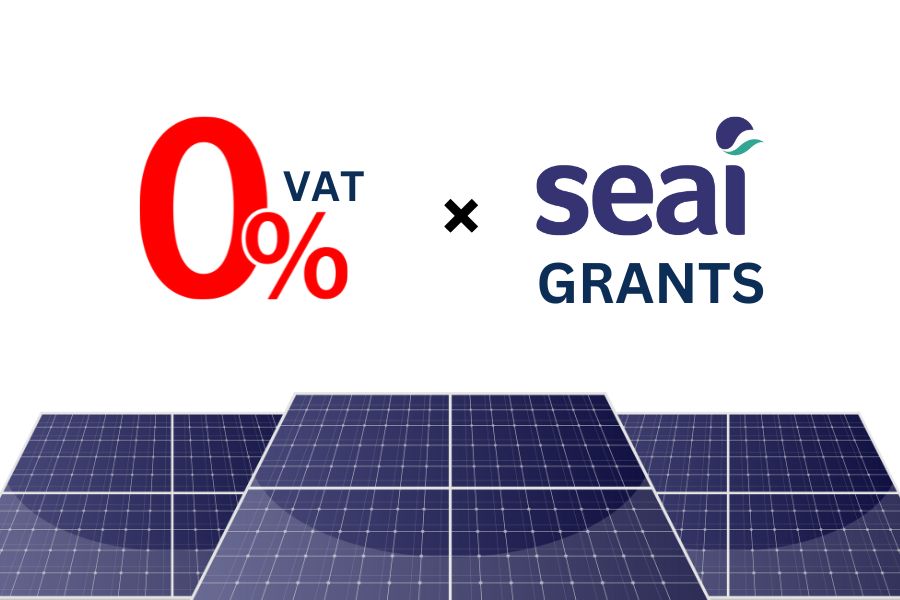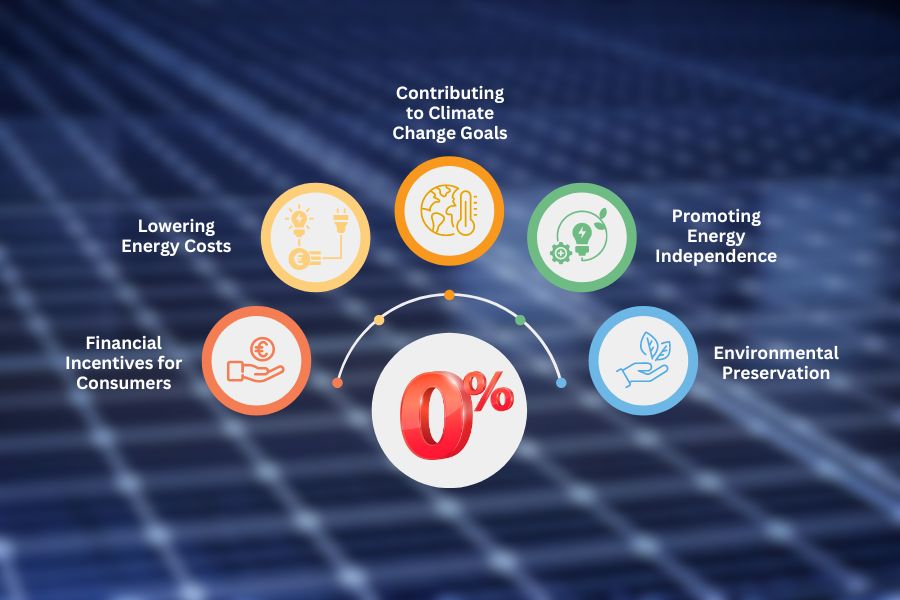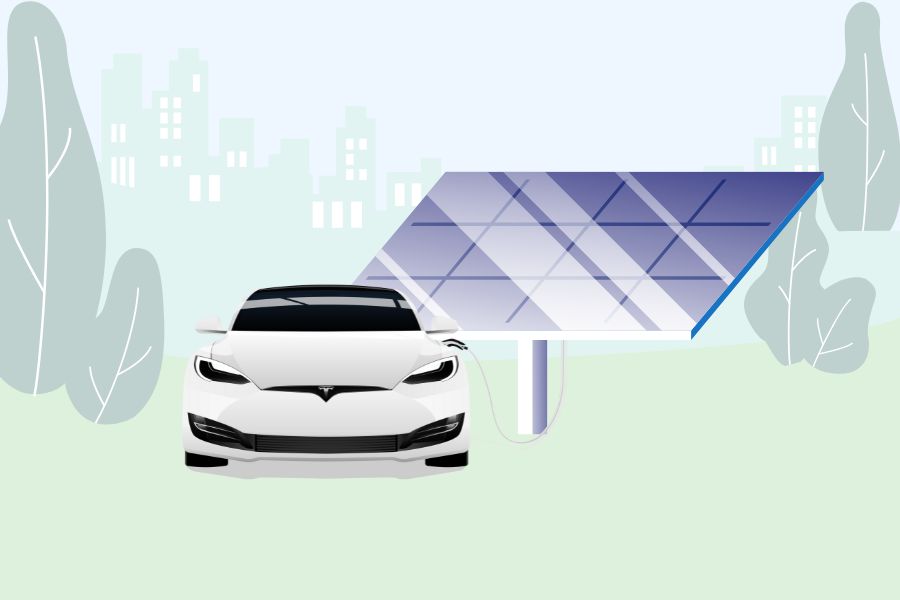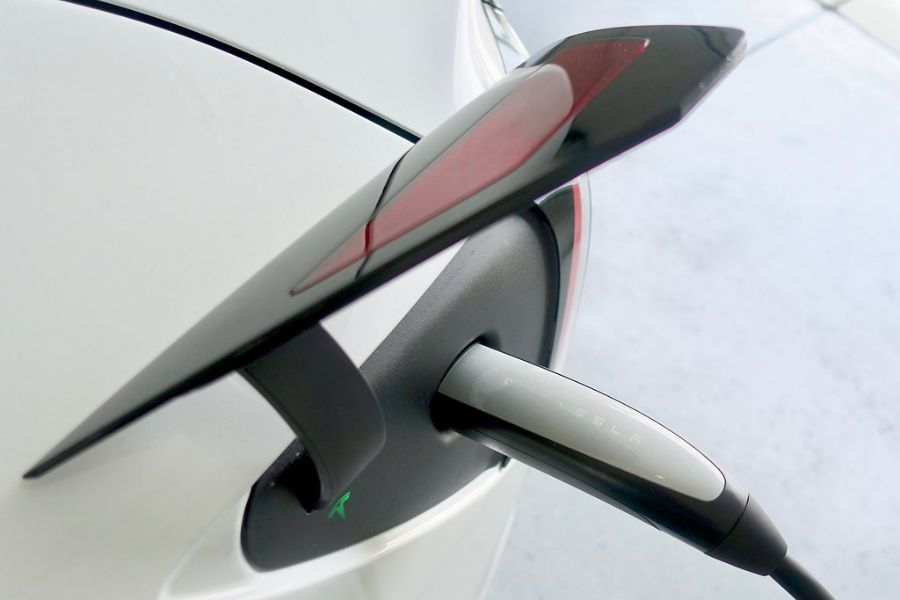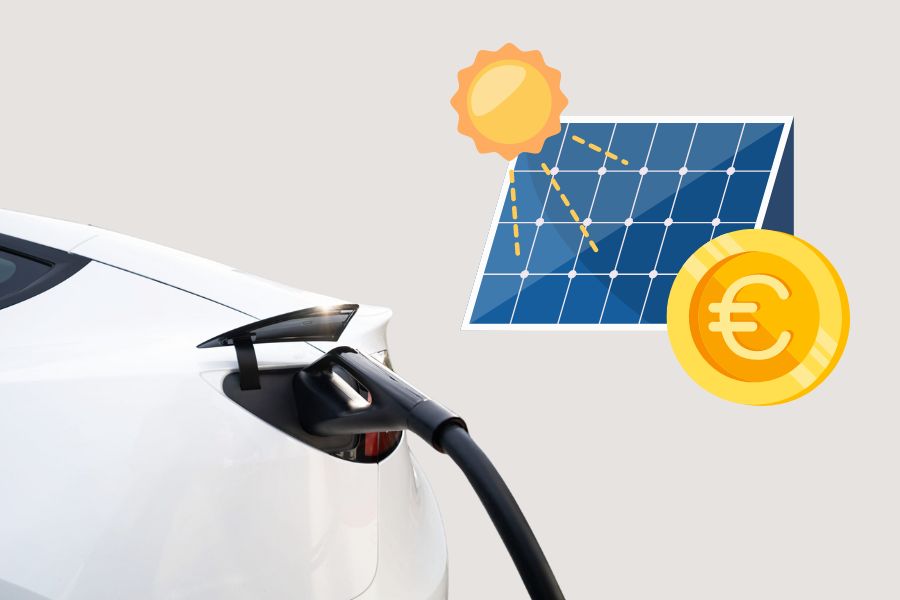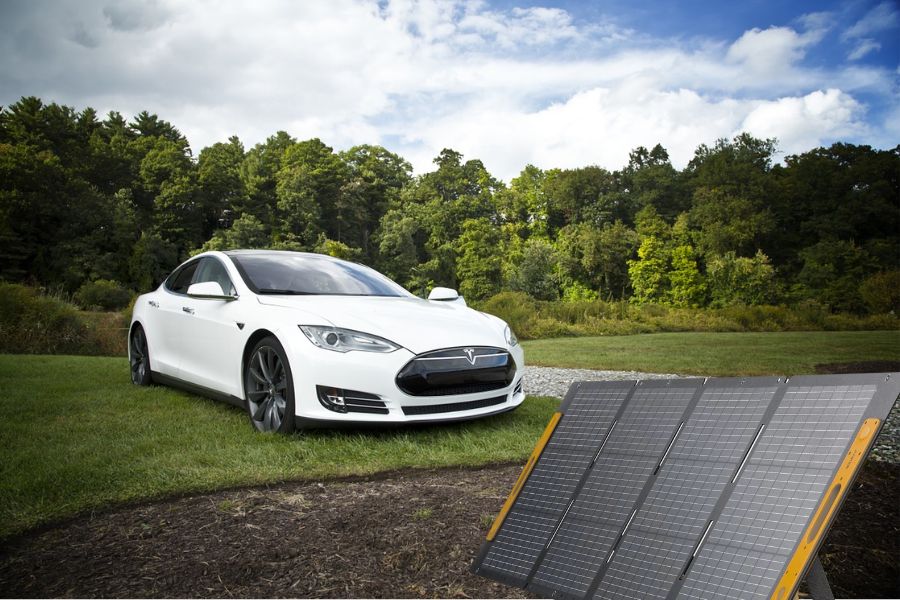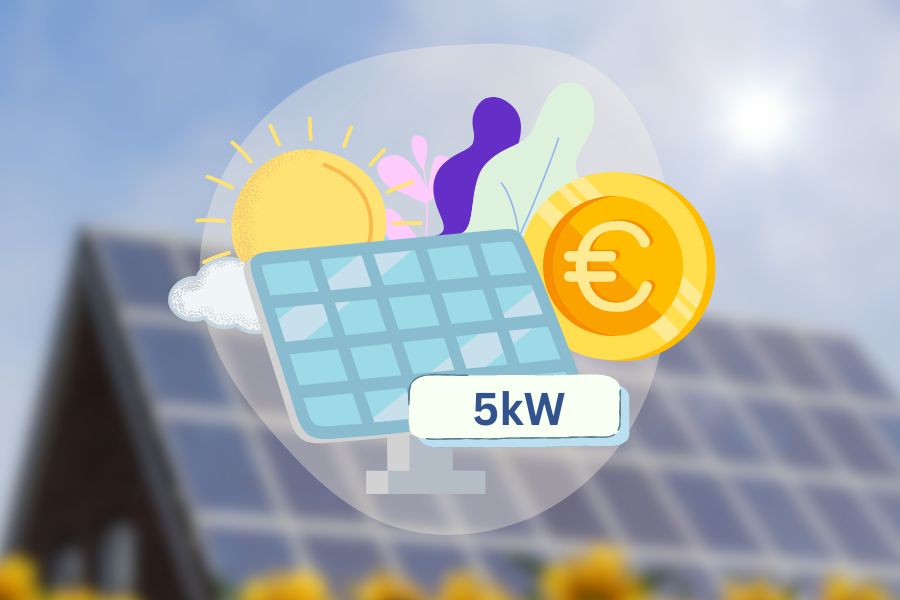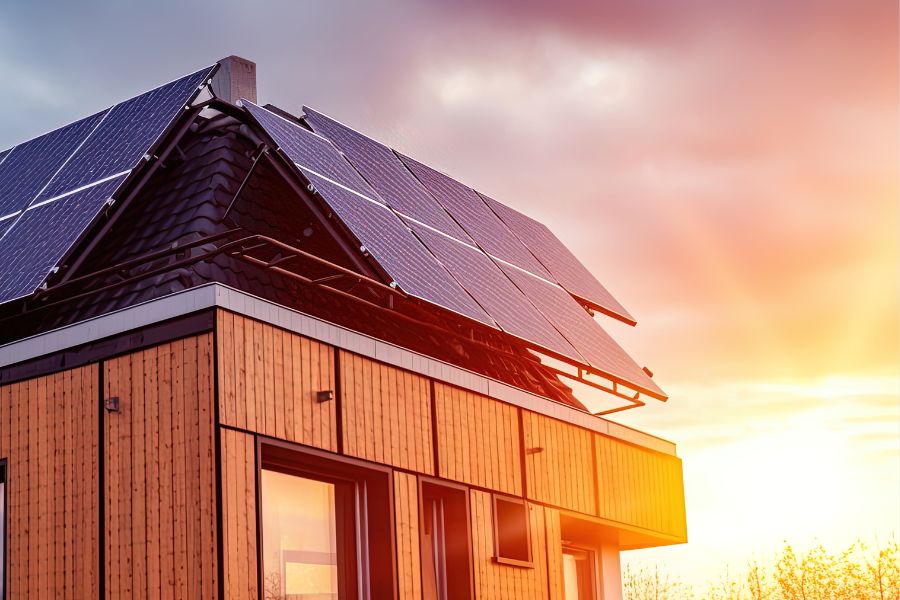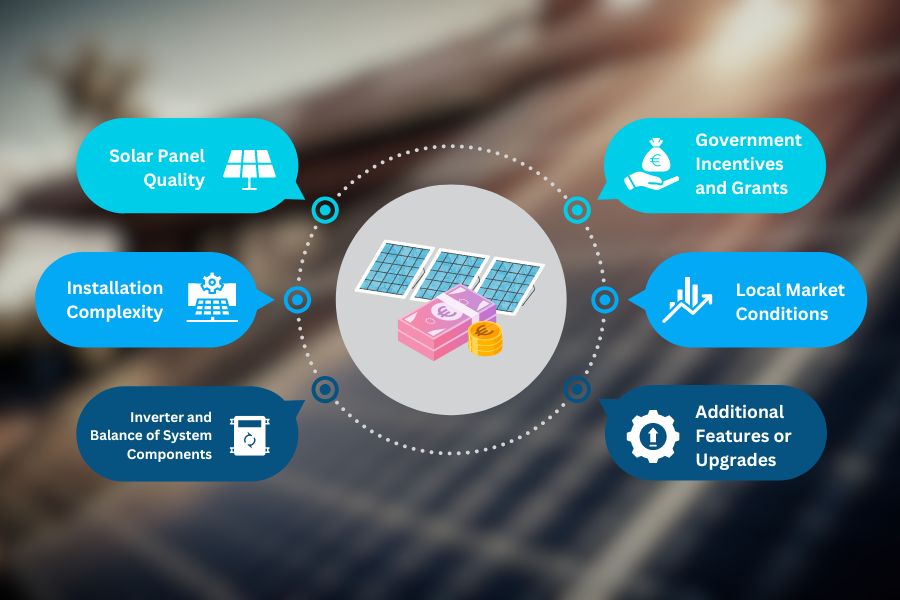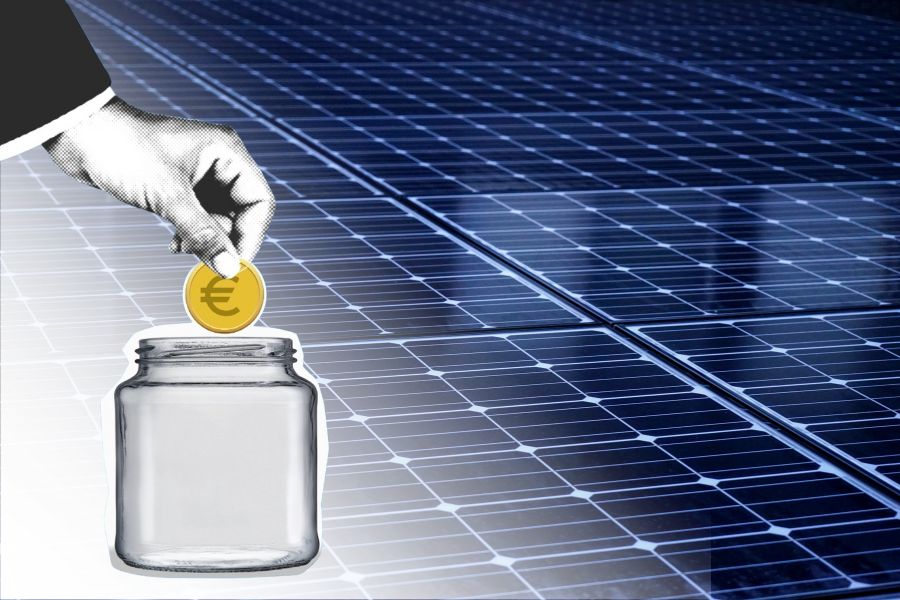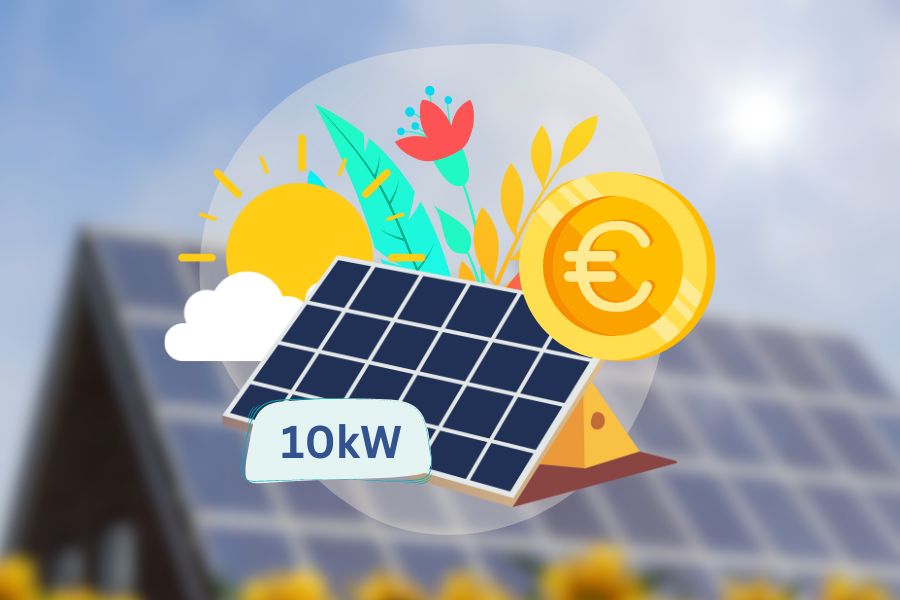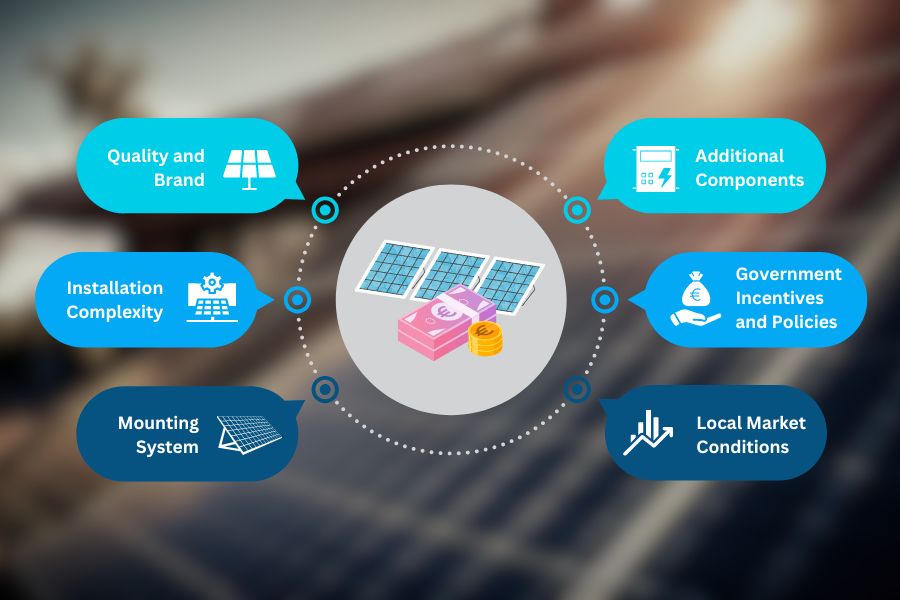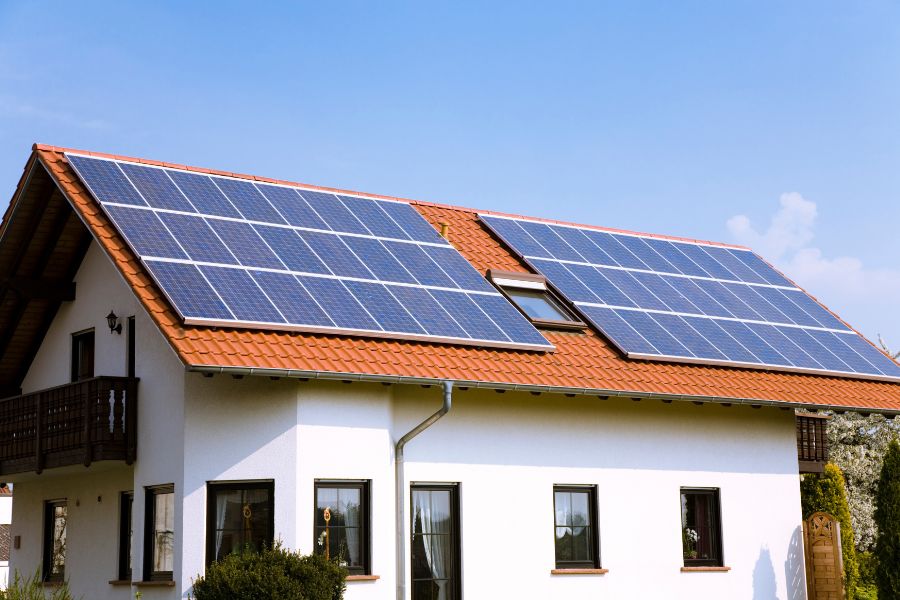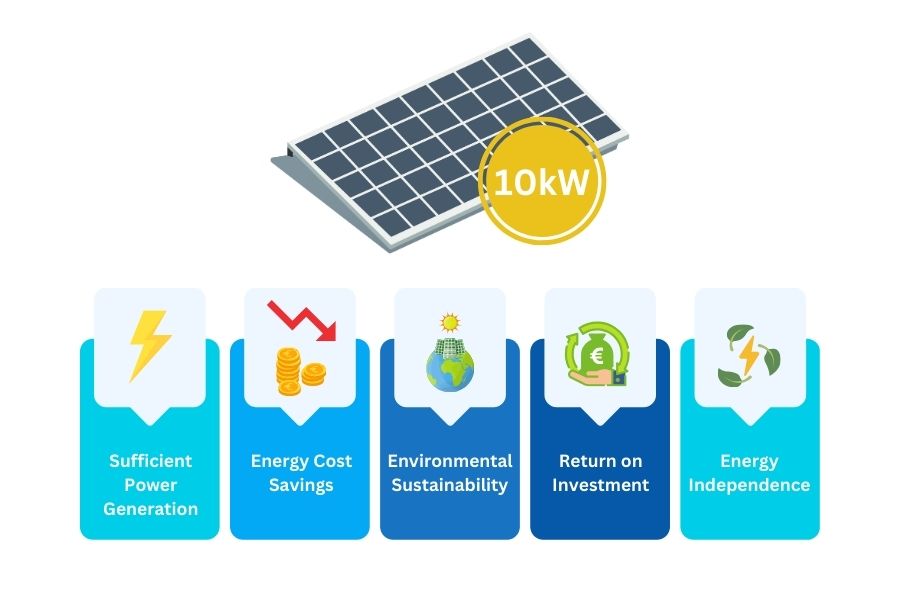Looking for the best solar panels service in Cork? Finding the best solar PV panel services in Cork involves careful research and comparison of several factors. It includes finding out about the company’s reputation and experience and quality of products and services.
As solar installations grow in popularity in Cork, many professional solar panel service providers are stepping up to meet the demand. By understanding your unique needs and exploring your options, you can find a service provider that guarantees efficiency, reliability, and excellent customer service.
Besides, it ensures that your solar panels function optimally, maximizing renewable energy yield. Remember, the best solar panel Cork service also includes maintaining your solar battery storage, ensuring a seamless solar energy experience.
Top 5 Solar Panels Servicing Companies in Cork, Ireland
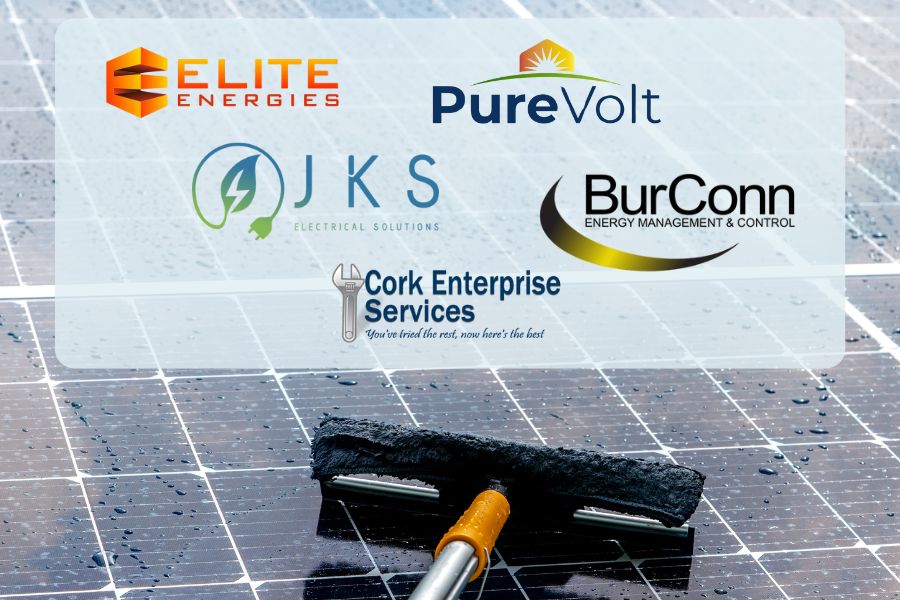
Elite Energy
Elite Energies is a trusted solar servicing company in Cork, Ireland. Equally important, it focuses on installing solar panels of superior quality in both residential and commercial settings. Their expertise extends nationwide, providing high-end solar panel installation for various clients.
The company also collaborates with Solarwatt, a leading German and European manufacturer, to supply premium glass solar PV panels. In addition, as a part of the BMW Group, Solarwatt delivers high reliability, impressive energy yields, and excellent guarantees. All those benefits make the solar PV system installed by Elite Energies a worthwhile investment.
Their commitment to quality and longevity sets them apart in the industry. While standard guarantees for commercial solar panels last around ten years, Elite Energies goes above and beyond. It offers an unrivaled 30-year warranty and a remarkable 60-year design life.
Lastly, focusing on long-term performance and service assurance positions, one can choose Elite Energies as a top choice for solar panel services in Cork and across Ireland.
PureVolt Solar
PureVolt Solar is a premier solar servicing company in Cork, Ireland. It is renowned for its exceptional installation and maintenance of solar PV systems. For homeowners and businesses seeking solar panel services in Cork, PureVolt Solar ensures peace of mind. Furthermore, the company offers reactive and preventive maintenance services across all sectors.
Understanding that solar PV systems require occasional servicing, PureVolt offers comprehensive checks on solar thermal components, electrical connections, and solar controls. The company ensures it confirms the smooth operation of the entire system. Moreover, with their in-depth expertise, they skillfully prevent and rectify issues arising from environmental factors, component failures, or external interference.
PureVolt’s maintenance services are essential in preventing costly losses due to inverter failures caused by various factors, including damage to the roof space. They deliver comprehensive performance reports, confirming whether your system is generating as predicted. Again, they also provide a solar service certificate for assurance.
Their tailored inspection programs suit individual needs. It includes an extensive array of checks, including:
- thermal imaging for hot spots
- integrity checks of fuses and surge protectors
- secure mounting of inverters
PureVolt also ensures the visibility and correctness of all system signage, labels, and emergency shutdown procedures.
Lastly, through their meticulous servicing, PureVolt Solar ensures the longevity and efficiency of your solar panels, contributing to significant energy savings over time.
JKS Electrical Solutions
JKS Electrical Solutions is a trusted solar servicing company based in Cork, Ireland. They are dedicated to maintaining and optimizing your solar systems to ensure you get the most efficient energy usage. In addition, their goal is to keep your solar system performing at its peak, reducing your energy bills significantly.
Their comprehensive services also extend beyond the systems they’ve installed. JKS Electrical Solutions provides maintenance and repair services for solar setups installed by any provider. The highly reliable electrical maintenance team at JKS has the expertise to address various solar system issues. It ensures your system operates at the correct settings for optimal performance.
Lastly, with its customer-centric approach, JKS Electrical Solutions is a go-to choice for solar servicing needs in Cork. Their commitment to effective service and customer satisfaction sets them apart in renewable energy solutions.
BurConn
BurConn is a leading solar panel servicing company in Ireland. It is renowned for its meticulous and comprehensive approach to maintaining solar thermal hot water heating systems. According to BurConn, these systems require servicing every 2-3 years for optimal operation. Fortunately, their team ensures this happens with utmost proficiency.
One of the key aspects they focus on is the antifreeze in the system, which tends to break down over time and may freeze during harsh winters. Moreover, they ensure the replacement happens regularly to prevent blockages and maintain efficient circulation within the system.
They also attend to potential issues with temperature sensors, which may become faulty or mislocated, giving false readings that could affect the system’s performance. Besides, they also carry out software updates on the controller if deemed necessary.
BurConn’s solar thermal system service includes a thorough power flush of the solar circuit to remove sludge and debris. In addition, it also includes checks on glycol fluid and all connections, both in the solar loop and the solar controls. They ensure the correct operation of all controls and set the appropriate pressure in the expansion vessel. Equally important, they calibrate the pump flow rate and confirm the system’s glycol pressure and controller settings.
After servicing all operational valves, check pumps and issue a solar service certificate for your records. Finally, BurConn offers complete services to keep your solar thermal system running at its best, enhancing energy savings.
Cork Enterprise Services
Cork Enterprise Services is a premier solar servicing company in Cork, Ireland. They specialize in maintaining the efficiency and reliability of thermal solar power systems. Over time, such systems can encounter issues like:
- a breakdown of antifreeze, which can even freeze during extreme winters, leading to system damage
- failing temperature sensors
- dislodged sensors
- outdated controller software
- clogged non-return valves due to infrequent antifreeze replacement
With a comprehensive solar service from Cork Enterprise Services, customers receive an exchange of old antifreeze fluid for new, ensuring the system functions optimally. The service also includes power flushing the solar circuit to remove dirt and debris. Further, it provides inspection of pipes and electrical connections to the system. They scrutinize the solar controller electrical connections and ensure all controls are correctly set and operational.
Cork Enterprise Services also:
- sets the expansion vessel pressure
- calibrates the solar panels’ pump flow rate
- sets the correct antifreeze pressure in the system
- confirms the controller settings
- checks that the system valves rotate correctly
Lastly, by offering these comprehensive services, they ensure your solar panels in Cork continue to provide significant energy savings and reduce energy bills.
Criteria for Choosing the Best Solar Panel Services in Cork
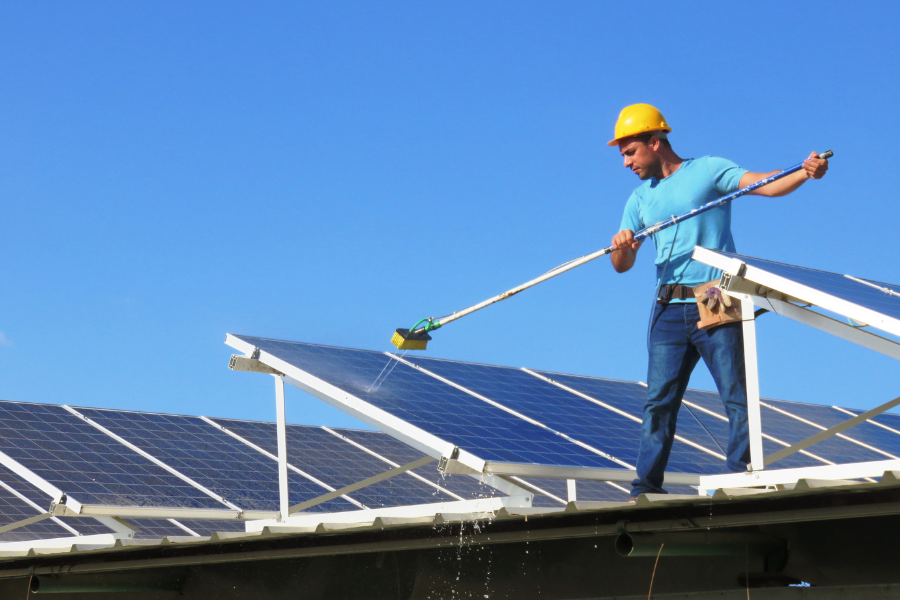
Experience and Expertise
The company’s longevity in the industry often mirrors its proficiency in installing and servicing solar panels, including crucial tasks like solar loop examination. In addition, their expertise should span various types of solar systems, from residential panels to large solar farms.
Comprehensive Services
Opt for a company offering a full range of services, from installation and power flushing to ongoing maintenance and repairs.
Reputation and Reviews
Companies with solid reputations and positive reviews are usually trustworthy and reliable. Furthermore, these testimonials can provide insight into the company’s customer service and expertise.
Energy Efficiency Consultation
The best solar panel service providers offer consultations to enhance your system’s energy efficiency, helping reduce your energy bill.
Quality of Components
The components used should be high-quality and durable, capable of withstanding weather conditions to ensure the system’s efficiency and longevity.
Industry Accreditations and Certifications
Valid industry certifications and accreditations indicate a reputable solar panel company.
Customer Service
Exceptional customer service is vital. They should be able to answer all your questions, including technical queries about the correct glycol pressure or how the sensors are appropriately secured.
Warranty and Aftercare Services
A company offering comprehensive warranty and aftercare services can provide peace of mind. Such a company ensures it addresses any post-installation issues promptly.
Questions to Ask Potential Service Providers in Cork
Inquiry About Their Experience and Expertise
Understanding a service provider’s background is critical. Questions about their years of experience in the industry, the training of their team, and the types of solar systems they’ve handled can provide insights into their capability to manage your solar needs effectively.
Understanding Their Service Range
Solar services can vary from company to company. Ask them about their services, such as installation, maintenance, repair, and servicing. Delve deeper by asking about specifics like power flushing and setting the correct glycol pressure in the system. In addition, if you’re interested in solar farms, ask if they have experience in this field.
Asking About Their Warranty Terms
A warranty can offer peace of mind when investing in a solar system. Ask the service provider about the warranty they provide for their panels and their quality. Also, understand what the warranty covers and how long, ensuring protection against unforeseen issues.
What’s the Payback on Solar Panels in Cork
The payback period for solar panels in Cork is estimated to be around seven years. It is calculated by considering the final cost of the system after grants, which is €6,505, and the annual energy bill savings, which amounts to about €900 per year.
So, by dividing the total cost by the annual savings (€6,505/€900), you get approximately 7.2 years. Besides, it means that after around seven years, the savings generated from reduced energy bills will have covered the initial investment in the solar panel system. That will lead to free electricity.
Conclusion – Solar Panels Service Cork
Finding the best solar panel services and solar panels in Cork doesn’t have to be an uphill task. Take time to investigate each company’s experience, reputation, and the range of services they offer.
Feel free to ask about the quality of their components and any industry accreditations they have. You can also ensure that the solar controls confirm SEAI regulations. Besides professional servicing in Cork, you can maintain your solar panels’ efficiency with regular cleaning, and learn more about how to clean solar panels.
Remember, investing in solar energy is not just about reducing your energy bill; it’s also a commitment to sustainable living. Equally important, finding a service provider who understands this is essential.
Consider the warranty and aftercare services, which show the company’s confidence in their work. Finally, by following these guidelines, you’ll be well on your way to enjoying the benefits of solar energy with a reliable and competent service provider.
